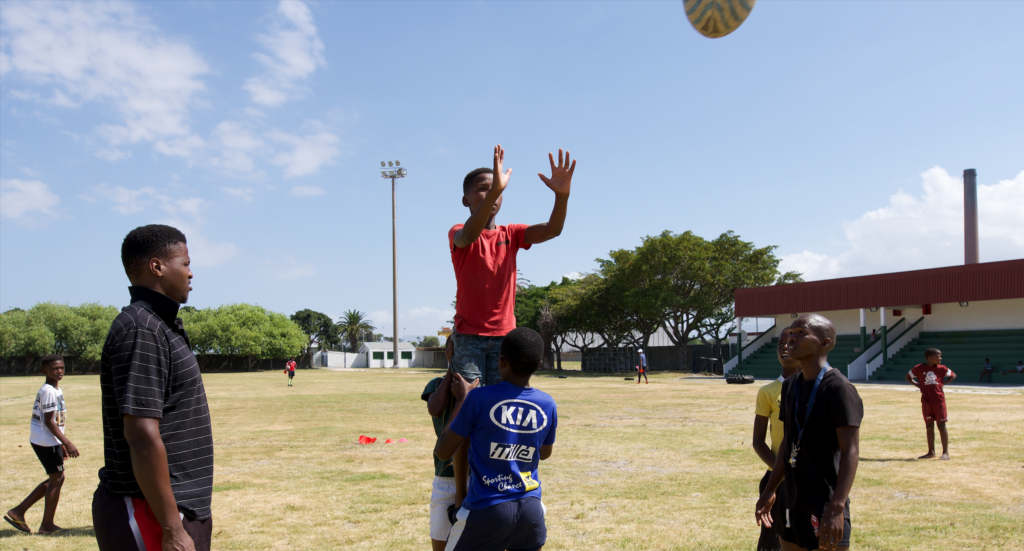South African rugby is on the cusp of tapping into one of the richest supplies of unearthed talent, writes PETROS AUGOUSTI.
Much like the mining days of yesteryear, there are vexing challenges to overcome, but the bosses-that-be need to tap into more resourceful measures to extract the black gold.
The current crop of sensationally talented black players plying their trade in Vodacom Super Rugby is evidence of a much deeper reef, a ‘big hole’ of diamonds so sparkling that Aphrodite herself would be blinded by their shimmer.
Former Sharks coach John Plumtree recently voiced what many leading international experts have long suspected when he suggested that the black talent filtering through the system could make South African rugby a ‘scary proposition’ in years to come.
Plumtree did add the caveat that in order for South African rugby to make the most of their unpolished diamonds, there is a need to provide organisation and world-class coaching.
READ: Black talent to lift SA rugby – Plumtree
Murray Mexted, a doyen of All Blacks rugby, over a few beers with some schoolboy coaches, also stated that ‘New Zealanders pray every night that South African rugby does not wake up and find just how strong they can be’.
Stormers hooker Scarra Ntubeni agrees with this assessment, and believes that there is such an abundance of gold at the end of the rainbow that South Africa could once again take up the mantle as the world’s most dominant team over a sustained period.
Ntubeni, currently playing some of the most consistent rugby of his life, has been in the trenches and speaks with authority.
‘When I was injured in 2016 I helped coach a youth team called Vusa Academy out of the Langa Township, and every day was an eye-opener, I mean the raw talent left me with goosebumps,’ the gnarly hooker says.
‘One of my best mates at the Stormers, Sikhumbuzo Notshe, started his rugby in Langa, playing for the Vusa Academy team, and look at him now, six caps for the Boks already,’ he adds.
The Vusa Academy management is trying to buck the current trend of socio-economics that sees talented black players going from dusty townships to elite rugby schools.
This is a tried and tested way to provide the most talented of young players an opportunity to parade their skills at derby days and Craven Weeks – but the model is not as sustainable and efficient as it should be, given the over-abundance of talent.
Master of rugby at Bishops preparatory school and principal of the Vusa Academy, Brendan Fogarty, believes there is another, more maintainable and viable solution.
‘There are only so many places available at these elite rugby playing schools, maybe 30 or so top programmes in the country, and this business model cannot withstand the vast numbers of players that can be harnessed through alternative rugby programmes,’ he explains.
‘There are also cultural factors to be considered, uprooting kids from their home environment and shipping them off across the country, and we at Vusa feel that empowering communities through rugby, guidance and education is a solution that needs more attention.
‘The get-the-boy-to-top-school mindset is fine, but it is limited in scope, and every day that we prevaricate and hedge our bets is another generation lost,’ he says passionately, almost fervently.
Fogarty makes some good points. If there are potentially hundreds of thousands of rugby-playing kids spread across the country there are never going to be enough places to accommodate them at so-called ‘top rugby schools’.
Secondly, by building up a rugby culture from within an area such as Langa for example, kids can have the advantages of a nuclear family upbringing, support from the community and a sense of belonging.
Bishops have key financial partners like Investec Asset Management, Capitec, Shoprite, KEPU and the Ikey Tigers to build one of the most successful township rugby centres in the country.
There are classrooms, teachers, mentors, top-notch coaches and a respite from life ‘on the street’. This academy is a microcosm of what should be happening in every township across the land.
While there are challenges, logistics and a cost that may be potentially prohibitive, the kimberlite and reefs are there to be broken, and the riches well worth the initial investment.
According to Fogarty, though, every person can contribute something in some way, and that in doing so would contribute to nation building.
‘It stems down to buy-in from the public… and is a natural progression in the development of sport and life in our wonderfully diverse country – rugby is a vehicle and an example,’ he concludes.
Photo: Gabriel Yaffes





